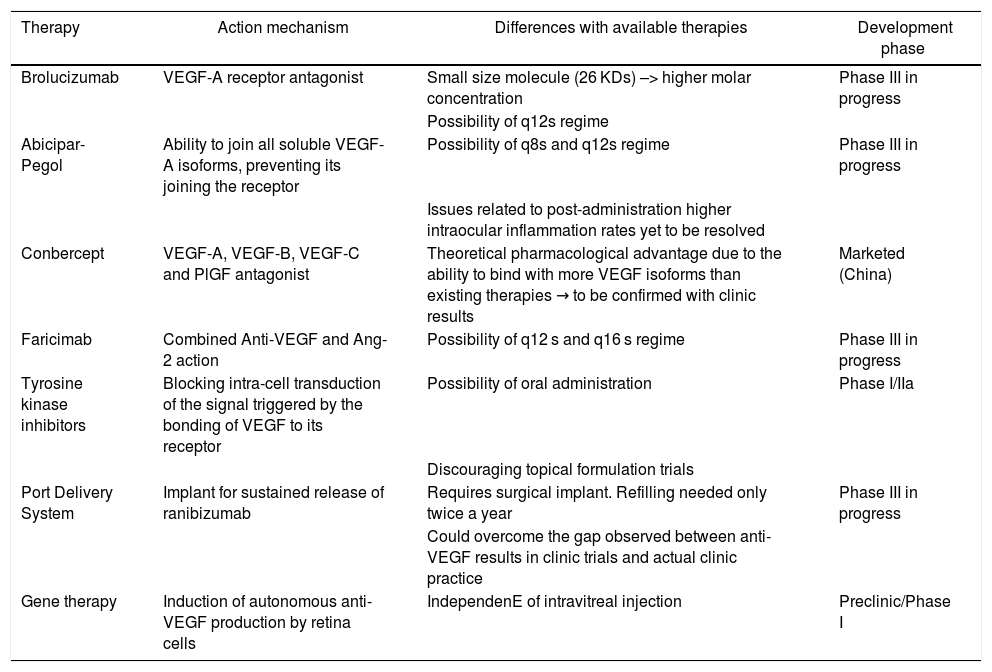Age-related macular degeneration and specially neovascular age-related macular degeneration is the leading cause of low vision in developed countries. Even though the introduction of anti-VEGF drugs in recent years completely changed the management of this condition, its cost, the need for repeated intravitreal injections and loss of efficacy in the long term are still issues to deal with. Currently, a new generation of novel therapies under development tries to address some of this limitations. Among them some of the most prominent are new anti-VEGFs such as brolucizumab or abicipar, drugs against angiopoyetin-2 receptor such as faricimab, sustained-release systems or tyrosin kinase inhibitors.
Regarding dry age-related macular degeneration, neuroprotection, the complement pathway and stem cell therapy are the most promising targets currently under investigation.
La degeneración macular asociada a la edad (DMAE) y en especial su forma neovascular, supone la principal causa de baja visión en países desarrollados. Aunque en años recientes la introducción de los fármacos conocidos como anti-VEGF ha supuesto una revolución en el manejo de esta enfermedad, su precio, la necesidad de inyecciones intravítreas repetidas, y la pérdida de efectividad a largo plazo en una importante proporción de pacientes son problemas aún por resolver. En la actualidad existen en desarrollo una serie de nuevas estrategias que tratan de ofrecer soluciones a las limitaciones que presentan los fármacos intravítreos actuales. Entre ellos destacan nuevos anti-VEGF como brolucizumab o abicipar, fármacos contra el receptor de angiopoyetina-2 como faricimab, sistemas de liberación sostenida de macromoléculas o inhibidores de la tirosinkinasa.
Respecto a la DMAE seca la neuroprotección, la modulación de la vía del complemento y, en última instancia, la terapia con células madre son las líneas de investigación más prometedores en la actualidad.







